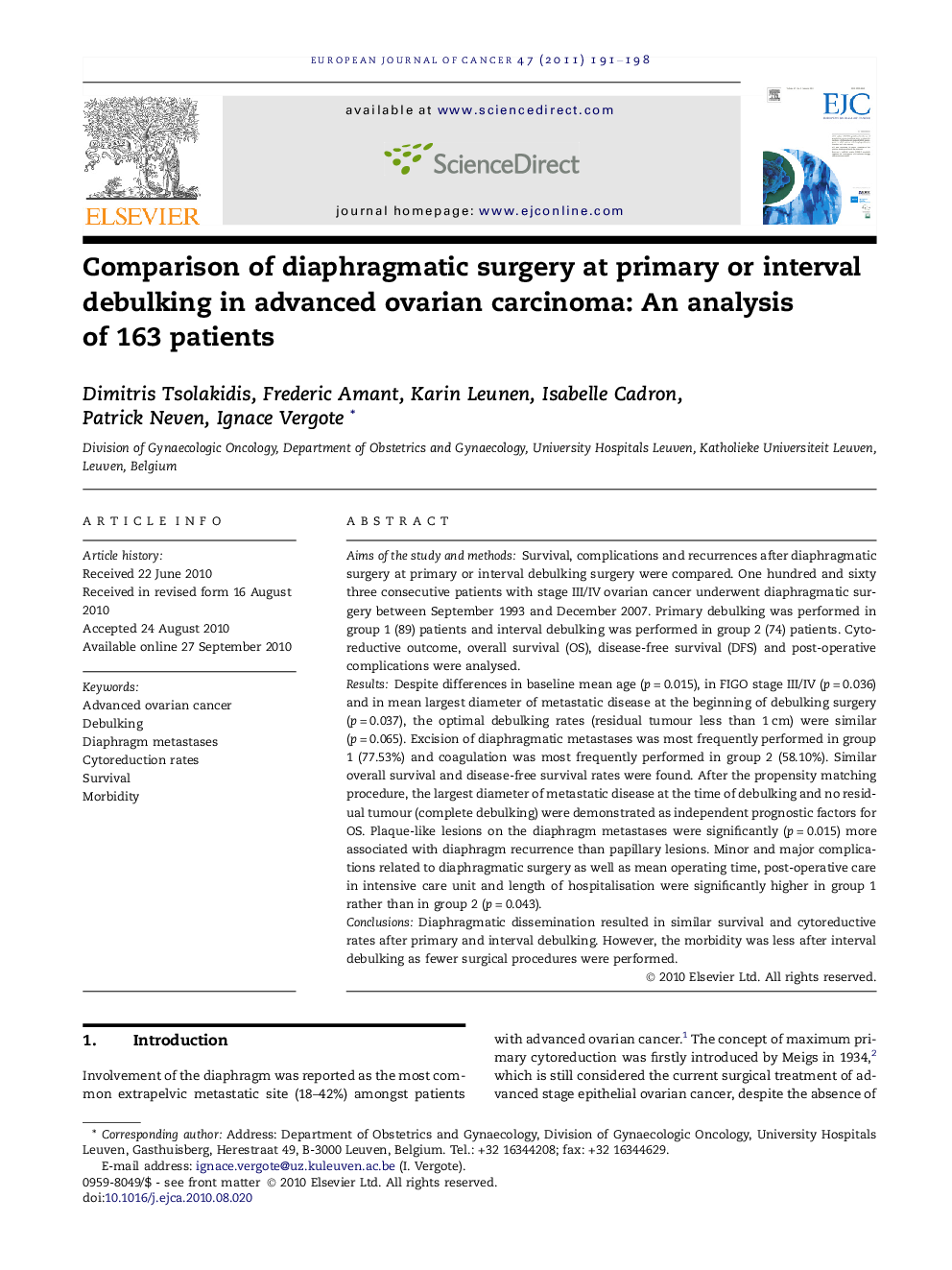| Article ID | Journal | Published Year | Pages | File Type |
|---|---|---|---|---|
| 2122960 | European Journal of Cancer | 2011 | 8 Pages |
Aims of the study and methodsSurvival, complications and recurrences after diaphragmatic surgery at primary or interval debulking surgery were compared. One hundred and sixty three consecutive patients with stage III/IV ovarian cancer underwent diaphragmatic surgery between September 1993 and December 2007. Primary debulking was performed in group 1 (89) patients and interval debulking was performed in group 2 (74) patients. Cytoreductive outcome, overall survival (OS), disease-free survival (DFS) and post-operative complications were analysed.ResultsDespite differences in baseline mean age (p = 0.015), in FIGO stage III/IV (p = 0.036) and in mean largest diameter of metastatic disease at the beginning of debulking surgery (p = 0.037), the optimal debulking rates (residual tumour less than 1 cm) were similar (p = 0.065). Excision of diaphragmatic metastases was most frequently performed in group 1 (77.53%) and coagulation was most frequently performed in group 2 (58.10%). Similar overall survival and disease-free survival rates were found. After the propensity matching procedure, the largest diameter of metastatic disease at the time of debulking and no residual tumour (complete debulking) were demonstrated as independent prognostic factors for OS. Plaque-like lesions on the diaphragm metastases were significantly (p = 0.015) more associated with diaphragm recurrence than papillary lesions. Minor and major complications related to diaphragmatic surgery as well as mean operating time, post-operative care in intensive care unit and length of hospitalisation were significantly higher in group 1 rather than in group 2 (p = 0.043).ConclusionsDiaphragmatic dissemination resulted in similar survival and cytoreductive rates after primary and interval debulking. However, the morbidity was less after interval debulking as fewer surgical procedures were performed.
